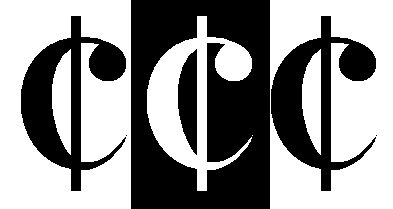The first concert in the 2016 ⁄ 17 Season of the Chichester Chamber Concerts took place on Thursday 6th October in the Assembly Room. It was an auspicious start. The performers were the youthful Van Kuijk Quartet and the programme included the two best–loved, and most performed, French String Quartets, those of Maurice Ravel and Claude Debussy.
The two works are closely linked; the Ravel quartet was undoubtedly influenced by that of Debussy, written some 10 or 11 years earlier. Both reflect the then popularity of Javanese gamelan music in the West, more so in the Debussy than the Ravel. Both were highly original and accordingly widely criticised at the time of their first performances (mainly because they were insufficiently "German", that is, not in the style of Beethoven) and both attained great popularity later on. And, sadly, the two quartets – or rather the publicity surrounding them – caused a rift between the two composers, who had hitherto been friends, that never properly healed. (Following savage criticism of the Ravel quartet at the Paris Conservatory, Debussy urged the younger composer "in the name of the gods of music and in mine" not to alter a single note of it.)
The Ravel String Quartet in F major was written in 1902 when the 27–year old composer was still a student at the Paris Conservatory. (He left in a fit of pique following the criticism the work received.) It is in four movements linked by two main themes introduced at the very beginning of the work. It is one of the most spontaneous of Ravel’s works and this was reflected by the Van Kuijk Quartet. This was not a perfect performance; the opening took a few moments to settle down, the final pizzicato note of the second movement was perhaps too long delayed and the momentum was somewhat disrupted by an overlong re–tuning between the second and third movements. But none of this mattered – the Van Kuijk’s delivered a rendition of great youthful drive and freshness which got to the essence of the piece and was thrilling to hear.
The Debussy String Quartet Op.10, also in four movements, was written at a time when Debussy was discovering a new sound–world and was much influenced by the Symbolist poetry of Mallarmé, the plays of Maeterlinck, the sculptures of Rodin and the paintings of Monet. It luxuriates in original and attractive melodies and harmonies and freely moving chords of often stunning beauty. It is no coincidence that the next piece Debussy wrote was the sensually languid L’Aprés–midi d’un faune. From the opening bars the Van Kuijks seemed very much at home with this work. The third movement in particular was truly delightful, drawing from the ensemble the most compelling music of the evening. However, throughout the whole piece they demonstrated unanimity of attack, compelling and forceful pizzicato and playing of the greatest confidence.
Between these two major French works, the Van Kuijks played Six Moments Musicaux Op. 44 by Geörgy Kurtág. Written in 2005 these short pieces are not linked thematically but were written to be played together. Requiring intense concentration on the part of both players and audience these fragmentary pieces received a compelling performance from the Van Kuijks, the last three of the six (In memoriam Sebök György, Rappel des oiseaux and Les Adieux) perhaps being the most persuasive.
This was an evening of great music played with youthful vigour and deep understanding by the Van Kuijk Quartet who have just joined the BBC New Generation Artists programme. They are clearly an ensemble to keep an eye on.
